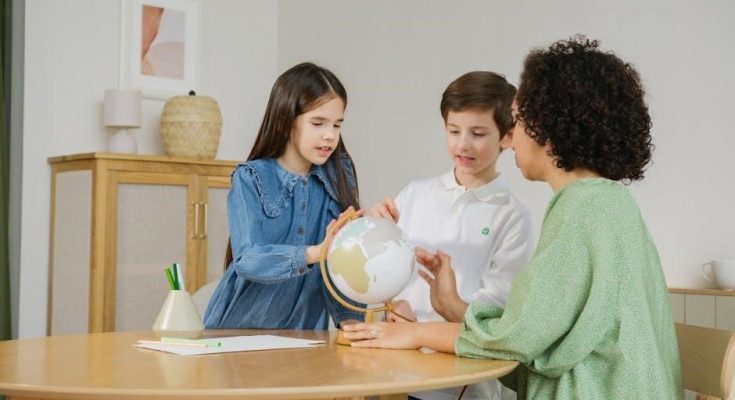Romeo and Juliet Act 2, Scene 1: Romeo’s Decision to Find Juliet
Romeo, determined to reunite with Juliet, decides to sneak into the Capulet orchard. His bold move reflects his escalating passion and willingness to defy fate.
1.1. Romeo’s Soliloquy and His Resolve
In Act 2, Scene 1, Romeo delivers a passionate soliloquy, expressing his ardent love for Juliet. Torn between his heart’s desire and the familial feud, he resolves to find Juliet, showcasing his determination to pursue their love despite the impending dangers. His words reflect a deep emotional struggle and unwavering commitment to being reunited with her.
1.2. Benvolio and Mercutio’s Concerns
Benvolio and Mercutio express worry over Romeo’s secretive behavior. They notice his distraction and decide to uncover the source of his troubles. Their concern highlights their loyalty and friendship, as they aim to guide Romeo through his emotional turmoil and prevent further conflict. Their interaction reveals the depth of their camaraderie and their attempts to intervene in Romeo’s fate.
Romeo and Juliet Act 2, Scene 2: The Balcony Scene
Romeo overhears Juliet confessing her love on the balcony. Their mutual vows of devotion deepen their connection, despite the families’ feud, igniting their romantic resolve.
2.1. Juliet’s Soliloquy: Expression of Love
Juliet, on her balcony, expresses her deep affection for Romeo, lamenting their families’ hatred. She longs to be reunited with him, showcasing her emotional depth and romantic sincerity, highlighting the conflict between love and familial loyalty in her heart.
2.2. Romeo’s Response and Their Mutual Vows
Romeo, overhearing Juliet’s soliloquy, reveals himself and professes his love. They exchange vows, promising eternal devotion despite their families’ hatred. Juliet pledges to marry Romeo, and they share a passionate moment, sealing their commitment. Their love intensifies, but the risks of their union loom large, foreshadowing the tragic consequences of their impulsive yet sincere vows.

Romeo and Juliet Act 2, Scene 3: Friar Laurence’s Role
Friar Laurence gathers herbs, contemplating their dual nature. He later agrees to marry Romeo and Juliet, hoping to end the feud between their families through their union.
3.1. Friar Laurence’s Soliloquy on Herbs and Fate
In his soliloquy, Friar Laurence reflects on the dual nature of herbs, noting their potential for healing or harm. This mirrors the duality of fate, as he contemplates the risky plan to unite Romeo and Juliet. His early morning gathering of herbs symbolizes his role as a mediator, seeking to harness nature’s power to alter destiny’s course. His thoughts reveal a deep understanding of the balance between life’s forces.
3.2. Romeo’s Request for Help and Friar’s Plan
Romeo seeks Friar Laurence’s aid to marry Juliet, hoping the union will end the feud. The Friar devises a plan, suggesting a potion to make Juliet appear dead. This risky strategy aims to reunite the lovers, showcasing Friar’s belief in love’s transformative power despite the dangers involved. His willingness to intervene highlights his compassionate yet precarious approach to resolving the families’ conflict.

Romeo and Juliet Act 2, Scene 4: The Capulet Ball Aftermath
Mercutio teases Romeo about his lovesick state, unaware of his secret marriage to Juliet. Romeo’s distraction worries Benvolio, who advises him to behave cautiously.
4.1. Mercutio’s Teasing and Romeo’s Distracted State
Mercutio playfully mocks Romeo about his lovesick demeanor, unaware of his secret marriage. Romeo, preoccupied with thoughts of Juliet, struggles to engage in their usual banter. His distant behavior alarms Benvolio, who notices a change in his friend’s mood. Mercutio’s jests reveal his concern for Romeo, while Romeo’s distraction highlights the depth of his emotional commitment to Juliet. This scene underscores the tension between friendship and romantic love.
4.2. Benvolio’s Advice to Romeo
Benvolio, noticing Romeo’s distraction, advises him to focus on the present and forget his sorrow. He suggests attending the Capulet ball to find another love, unaware of Romeo’s secret. Benvolio’s practical advice contrasts with Romeo’s romantic idealism, highlighting their differing perspectives. This exchange underscores Benvolio’s loyalty and his attempt to guide Romeo away from impulsive decisions, while Romeo remains fixated on Juliet, intensifying the central conflict of love versus duty.

Romeo and Juliet Act 2, Scene 5: Juliet’s Anticipation
Juliet eagerly awaits news from Romeo, her impatience growing with each passing moment. The Nurse’s delay heightens tension, showcasing Juliet’s deep emotional investment and restless longing.
5.1. Juliet’s Impatience for Nightfall
Juliet’s eagerness for nightfall reflects her deep longing to reunite with Romeo. Her impatience grows as she awaits the Nurse’s return with news of Romeo’s plans. The delay heightens her emotional tension, showcasing her passionate and determined nature. This moment highlights Juliet’s transformation from a naive girl to a resolute individual willing to risk everything for love;
5.2. The Nurse’s Delay in Delivering the News
The Nurse’s delay in sharing Romeo’s message heightens Juliet’s anxiety and frustration. Her prolonged absence and playful teasing escalate Juliet’s desperation, emphasizing the emotional stakes. This moment underscores the Nurse’s complex role as both a loyal confidante and an unintentional source of tension, deepening the drama and highlighting Juliet’s growing resolve to defy obstacles for her love.

Key Themes in Act 2
Love and hatred dominate, while fate and destiny shape the characters’ paths. These themes intertwine, highlighting the inevitable tragic consequences of their choices and societal conflicts.
6.1. Love vs. Hate: The Central Conflict
The intense rivalry between the Montagues and Capulets fuels hatred, while Romeo and Juliet’s love blossoms in secret. Their passion defies the animosity, creating emotional tension. Love becomes their escape, yet the surrounding hate accelerates the tragic fate. This duality drives the narrative, highlighting the destructive power of unchecked vendetta and the redemptive force of true affection.
6.2. Fate and Destiny in Act 2
Romeo and Juliet’s belief in fate underscores their actions. Romeo sees fate guiding him to Juliet, while Friar Laurence attempts to alter destiny through his plan. The inevitability of their fate is highlighted as their choices lead to tragic consequences. Destiny looms over their love, emphasizing the idea that their lives are predetermined, leaving little room for escape from their doomed path.

Character Development in Act 2
Romeo transforms from a melancholic lover to a determined suitor, while Juliet matures into a resolute individual, both driven by their intense emotions and unwavering commitments.
7.1. Romeo’s Transformation from Melancholy to Determination
Romeo transitions from a lovesick youth to a resolute lover, driven by his passion for Juliet. His determination to find her and defy obstacles showcases his emotional growth and commitment, highlighting his transformation from passive melancholy to active pursuit of love and destiny, despite the challenges and risks involved in their star-crossed relationship.
7.2. Juliet’s Growth into a Determined Individual
Juliet evolves from a naive girl to a resolute woman, driven by her love for Romeo. Her balcony soliloquy reveals deep emotional maturity, as she expresses her passion and longing. Despite familial conflicts, she remains steadfast, willing to risk all for her love, showcasing her transformation into a determined and courageous individual ready to challenge fate and societal expectations for her relationship with Romeo.

Symbolism and Imagery in Act 2
Light and dark imagery symbolize love and conflict, while the balcony and garden represent purity and forbidden passion. These elements enhance the emotional depth of the scenes.
8.1. The Use of Light and Dark Imagery
Light imagery symbolizes purity and love, as Romeo describes Juliet as “the sun” and “brighter than the stars.” Dark imagery, like shadows and night, reflects secrecy and danger. Juliet’s balcony, bathed in moonlight, contrasts with the darkness of their families’ hatred, emphasizing the emotional tension and forbidden nature of their love. This contrast underscores the central conflict and romantic idealism.
8.2. The Symbolism of the Balcony and the Garden
The balcony and garden symbolize a private, intimate space where Juliet can express her true emotions. The balcony serves as a threshold between her public life and inner world, while the garden represents a natural, serene setting where Romeo and Juliet can connect. These locations enhance the romantic and emotional depth of their encounter, emphasizing their longing for unity despite the conflict surrounding them.

Study Questions and Analysis
Analyze key questions about major scenes in Act 2, focusing on character motivations, themes, and significant plot developments that shape the tragic progression of the story.
9.1. Key Questions for Understanding Act 2
- What motivates Romeo to decide to find Juliet after the feast, and how does this reflect his character development?
- How does the balcony scene reveal the depth of Romeo and Juliet’s emotions, and what symbolic elements are present?
- What role does Friar Laurence play in Act 2, and how does his plan impact the lovers’ fate?
- How does Mercutio’s teasing of Romeo highlight Romeo’s emotional state, and what does this reveal about their friendship?
- In what ways does Juliet’s anticipation of nightfall and the Nurse’s delay showcase her growing determination and maturity?
- How does the central conflict of love vs. hate evolve in Act 2, and what events escalate this tension?
9.2. Analysis of Major Scenes and Their Significance
Key scenes in Act 2, such as Romeo’s decision to find Juliet, the balcony exchange, and Friar Laurence’s intervention, showcase the escalating emotional depth and plot progression. These moments highlight Romeo and Juliet’s deepening love, the clash of fate and personal choice, and the supportive yet risky role of Friar Laurence; Each scene underscores the tragic inevitability of their story, setting the stage for the devastating conclusion.



